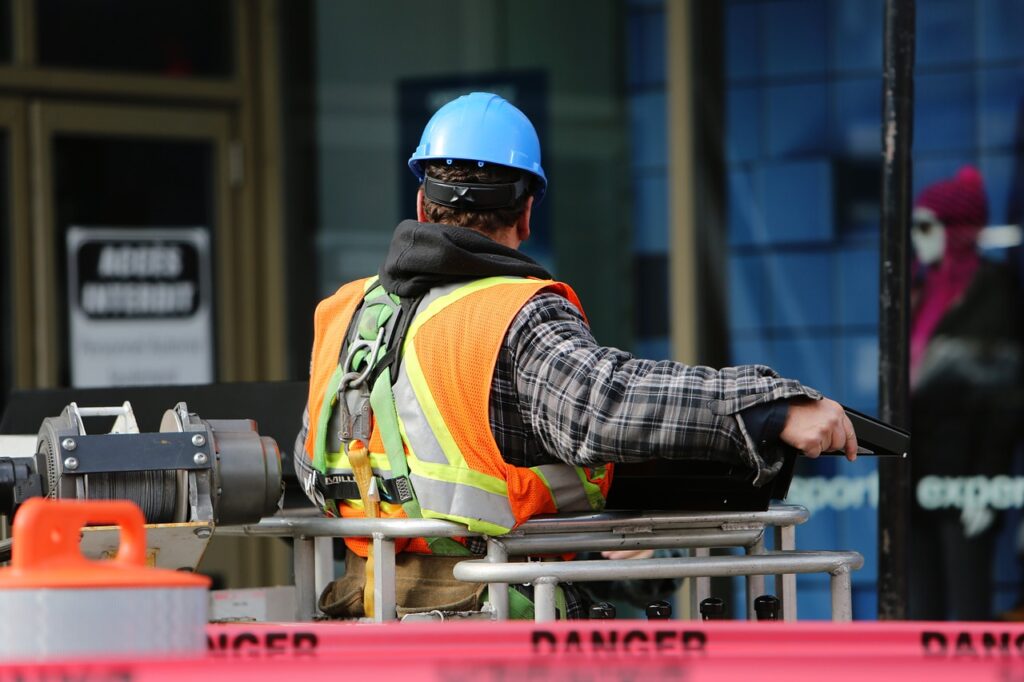Why is the construction sector so male-dominated?

99% of the UK’s on-site construction workers are male. Of the women making up just 11% of the entire construction workforce, 87% are limited to desk, design and secretarial roles. These shocking statistics have remained a constant for decades. When women account for 47% of all employed people, how has this disparity been allowed to continue? What barriers are women facing in the construction industry? And how can we move towards a more gender-equal built environment?
The problem does not just persist on site. According to The Guardian, the UK has a lower proportion of female engineers than anywhere else in Europe. In British universities, only 14% of entrants to engineering-based courses are women. Countless other industries have been diversifying their workforce for years and have been reaping the benefits of doing so. However, the beefy male builder with slightly too low trousers is one stereotype that’s proving difficult to shift.
What is it that’s causing this stagnation? Some would claim it’s the result of decades of blatant, tolerated sexism. However, others would suggest, somewhat controversially, that the construction industry is just fundamentally unappealing to women on a biological level.
Do women want to work in construction?
Germany is leading the way in construction gender equality. Over 30% of their construction workforce are now women. This would clearly suggest that women are interested in construction if the opportunities are made open to them. In fact, during The Second World War, women had very little trouble stepping into the manual labour roles left vacant by absent male soldiers. They manufactured ships and planes, and there’s even evidence to suggest they did it more efficiently than their male counterparts.
So, where does this idea come from that women don’t belong in construction? Many believe the prejudices begin at a very young age. Presentation of ‘traditional’ gender roles in schools, at home and in the media reinforce the idea that building, engineering and manual labour are specifically for men. Even the toys we play with as infants help to fortify this image. Many young boys are given Lego and encouraged to get dirty, while ‘girl toys’ are often centred around beautification and mothering.
It’s only since 1975 that the Sex Discrimination Act (now the Equality Act) has permitted women to work freely within construction. Therefore, there’s still a long way to go before these stereotypes can be eradicated.
What obstacles do women in construction face?
The simple, yet unfortunate answer is sexism. Of the women who do work in construction, over half have been victim to sexist abuse or discrimination.
Sexist language has permeated through the construction industry since its inception and has largely gone unchallenged. This begins with everyday, casual sexism, like manual workers telling each other to ‘man up’ or to ‘stop being a girl’. However, this attitude soon leads to patronising or demeaning comments being directed at female colleagues. Terms like ‘good girl’ and ‘sweetheart’ are incredibly common, as are more aggressive terms like ‘diva’ and ‘bossy.’ The regularity of these comments undermines female efforts and makes women feel undervalued at their job.
In financial terms, the construction industry has one of the largest gender pay gaps of any UK sector. On average, women construction workers earn 38% less than men, with only 14% of executive roles being filled by women. This could be caused by a number of factors. Many believe that the construction industry does not provide adequate parental leave, making it harder for women to progress in their careers once they have children. Others believe that the main cause is informal, sub-standard recruitment processes that unconsciously (or perhaps consciously) favour men over women.
What’s certain is that many women feel that they have no female role models in construction to aspire to. They don’t want to enter an industry that they feel excluded from, and thus a vicious cycle of discrimination ensues.
A more gender-equal future for construction?
With thousands of new housing projects getting underway, there are to be two million new construction jobs created in 2022. Therefore, it seems that the UK construction industry needs to increase its diversity efforts if it’s going to meet its targets. Research from McKinsey & Co even suggests that businesses that embrace gender diversity are 25% more likely to achieve above-average profits.
Some simple things the industry can do immediately is include more women in hiring processes. This would help to combat the prevalent bias towards men. Businesses can also think more carefully about the language they use, both on-site and in their job advertisements. They can make it clear to women that there is a myriad of job opportunities in the construction sector, including architects, engineers, site managers and surveyors.
There are some signs that things are steadily improving. Between 2018 and 2020, the number of women in construction management roles increased by 9% (BigRentz reports). Support for the hashtag #notjustforgirls grew exponentially in 2021. Meanwhile, organisations like VIY (Volunteer It Yourself) are encouraging young girls to learn manual trade skills. 38% of their intake is now female. Programmes like this need to be supported by the industry if women are to see construction as a viable career option in the future.
To really solve the diversity crisis, however, the construction industry needs to look within. Construction business leaders need to reevaluate their company culture and aim to dispel any sexist behaviours that have become common practice among the workforce. It could take years of uncovering, unlearning and underdoing for the construction sector to move into the 21st century.

